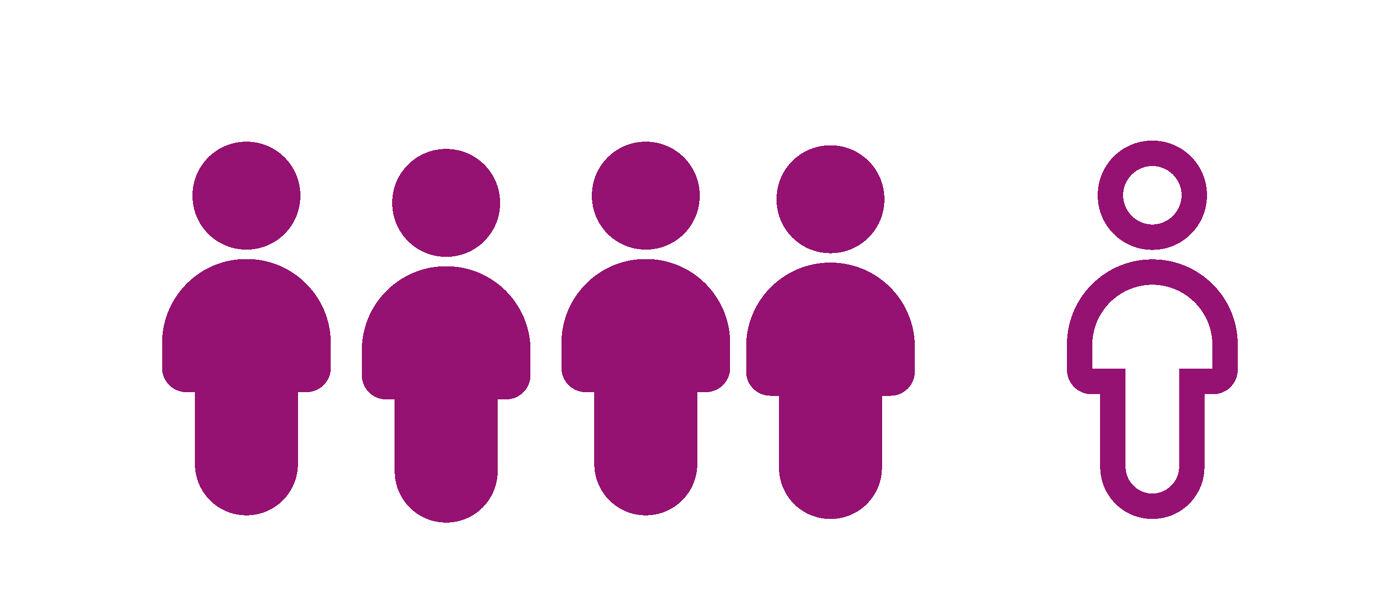MVLS 2033: Investing in our College Futures
The purpose of the College of Medical, Veterinary & Life Sciences (MVLS) is to transform lives by tackling the major life science, biomedical, population and environmental health challenges of our times through delivery of world class research, innovation and education.
Our mission since 2021 has been to reimagine our community, by transforming our culture and reshaping our College structure, to better enable us to coalesce around thematic strengths, facilitated in turn by bold strategic pillars of research, innovation and education.
Our new shape enables our ambition to be a world-changing College and offers a firm foundation upon which to build an exciting programme of investment and growth.
Please watch this video and explore this page to learn more.
What is MVLS 2033?
Our vision for 2033 comprises an MVLS that is vibrant and impactful, through which our inventions, interventions and innovations will shape the social, cultural and economic prosperity of our city, our country and civilisation itself.
This vision will be achieved with an ambitious programme of investment in people, our environment, and our culture. Working with the wider University, our investments will be delivered through our College Futures programme, and will bring the following themes to reality, across our research, innovation and education.
Learn more about our College futures
Our 2033 vision, delivered via our strategies, and supported by our new collegiate structure, forms the platform for targeted investment and growth. Our ambition will be prioritised, planned and focused around our exciting new ‘College Futures’ themes.

Fundamentals of Life
Our aim: to drive world-leading fundamental research as an internationally recognised discovery bioscience centre.

Advanced Diagnostics and Therapeutics
Our aim: to pioneer development and delivery of the next generation of novel human and animal clinical interventions.

Health Inequalities
Our aim: to understand the causes and consequences of health inequalities and to develop and implement scalable solutions to address them.

Planetary Health
Our aim: to understand how environmental changes affect the health of humans, animals and ecosystems, and to find and evaluate new ways to mitigate these threats.
How will we achieve this?
To deliver this we will be investing in our College across cognate themes and job families. This will manifest as an ambitious retention and recruitment programme together with significant investment in our core facilities.

People
+++
We will:
Grow and balance our academic community – investing in R&T (in prioritised areas of strength) and maintenance of a vibrant LTS community
Revitalise our research and enhance our teaching with investment in earlier career academics
Support the development of well rounded academic careers, enabling R&T staff to deliver excellence in research and LTS staff to deliver evidence based pedagogy and scholarship
Deliver a high performance culture through setting clear objectives, monitoring progress and taking action when behind plan
Embrace service excellence - creating better career pathways for professional services and optimising processes to deliver for staff and students
Support the investment in academic staff - with appropriate investment in professional services
---

Innovation
+++
We will:
Diversify our portfolio of programmes at UG and PGT
Invest in PhD scholarships aligned to areas of research excellence to ensure a vibrant community of earlier career researchers integrated across the College and wider University
Develop a supportive environment that attracts research fellows/fellowships
Support ongoing quality across research and teaching e.g., attracting early career academics to develop well rounded careers in Glasgow
Ensure our education and postgraduate training is aligned across our strategies to provide the blueprint to produce sector ready (post)graduates
---

Space and Facilities
+++
We will:
Enhance utilisation of our existing spaces (labs, offices and local teaching spaces) to place MVLS at the forefront of flexible and hybrid working.
Develop a clear vision for how our campuses will support our College Futures ambition, starting with a review of the quality of our estate.
Invest in underpinning infrastructure e.g., shared research facilities, including IT and AI, health informatics capabilities and data science will deliver the research environment required to deliver our ambitions.
---
Our Collective Roles and Responsibilities
+++
College Management Group (CMG) will:
- Develop an environment that supports earlier career staff to grow into rounded academics (with excellence in: research and teaching, or, evidence-based learning, teaching and scholarship)
- Lead by example in performance support and management
- Role model expected behaviours and challenge where these are not met
- Manage budgets altruistically to support agile investment in excellence
- Deliver a vision for our campuses that supports research and teaching
- Enable flexible space utilisation to underpin growth (research and student growth)
---
+++
Line managers will be empowered to:
- Support their teams to develop rounded careers with excellence in research and teaching, or learning, teaching and scholarship expected at all career stages
- Clearly articulate objectives for new recruits
- Manage performance effectively with support through ongoing discussion with staff
- Model the behaviours expected of UofG colleagues and challenge where these are not met
- Support flexible and altruistic local space management
---
+++
Staff will be able to:
- Engage fully with our high-performance culture
- Embrace flexible and hybrid working to enable enhanced space utilisation
- Model the behaviours expected of UofG colleagues and challenge where these are not met
- Engage with the College vision including providing opportunities for improvements and supporting change
Academic Staff will also:
- Commit to delivering research and teaching excellence
- Contribute to UG and PGT across career tracks
- Supervise PhD students towards successful completion within 4 years
---
Our College, Our Futures - How to Get Involved
We want to create an environment and culture where Schools and individuals are empowered and supported to deliver ambitious and innovative research and teaching activities that contribute to the overall College strategies.
We are keen to hear your thoughts, comments and questions about our College Futures project and also our previous restructuring exercise (MVLS 2025), now that we are one year on.
FAQs
What is MVLS 2033 Project aiming to deliver?
MVLS 2033 is a project to guide and manage the realisation of a significant new investment in the College’s people, facilities and infrastructure. This investment will help the College achieve its ten-year vision, which is centred around becoming internationally recognised across our four College Futures themes.
How does MVLS 2033 relate to the College reshape that was implemented through the MVLS 2025 project?
MVLS 2025 facilitated the creation of a supporting infrastructure to enable the College to realise its bold vision. This next phase is about investing to develop and enhance our workforce, giving us the tools and resources to embed excellence in all that we do.
What roles will be hired, and in which schools/areas?
Over the coming years we will make significant investments in our workforce, across all areas of the College. We are setting up workstreams with leadership from senior academic and professional service colleagues and membership from across the schools and services, to ensure we develop a recruitment and retention strategy that satisfies the needs and capacity of the different areas of the College. At the heart of all recruitment will be diversity and excellence. We want a diverse workforce that will deliver world-class research and teaching.
What investment will there be into developing the careers of early career academic staff?
A lot of thought continues to be put into fostering the careers of early career researchers, guided by our Research Strategy. More broadly, early career academics will be at the heart of the College’s future. We will be investing heavily in the recruitment of new staff at early career stages, including opportunities arising from our strategy to increase our intake of new lecturers, and the development of existing staff.
How many staff will be recruited and what are the timeframes?
Over the course of the next 10 years we aim to recruit a significant number of new staff to support our ambitions. The actual number will be determined as we progress. The growth will be planned in a coordinated manner that staggers recruitment over the course of the 10 year period.
Has the College considered diversity and inclusion in its growth plans?
We will continue to promote and expand our diversity, by considering how our growth plans can be as inclusive as possible, while also ensuring that we attract and value the contributions from colleagues and students from all backgrounds. Encouraging applications from under-represented groups will play an important part of our recruitment strategy.
Will my job change?
We do not plan on making changes to individual roles or duties as part of the College’s growth. Notwithstanding that, all roles evolve over time.
What do I do if my interests do not fit within one of the four College themes?
The four themes are intentionally broad and cover all areas of our College. There will be ongoing opportunity for dialogue regarding how existing and future areas of focus will evolve to ensure that our profile and successes arising from themes include opportunities for all of us to make distinct and aligned contributions. The College will always be open to new challenges that arise over the next 10 years and horizon scanning will remain an important part of our outlook.
Will there be changes to the structure of professional services teams to accommodate growth?
Some professional service teams will grow to support the academic and student growth. The MVLS 2033 proposals do not require changes to professional service team structures, but we will continue to review arrangements to ensure the best structure for our College and Schools, and best integration with services across the University. While some budgetary assumptions have been made to help us imagine how such capacity will evolve, the details of such investments will be informed by our ongoing, detailed work.
Will additional investment be made in College technical facilities and staff?
Yes, School and College level planning will continue to ensure that technical facilities, jobs and skills development are in line with operational needs and strategic opportunities. This will be in keeping with the University’s Technician Commitment action plan. We have already started important work to coordinate our core technical facilities on a shared basis, to enhance the availability of high quality and advanced capabilities. In turn, this will make our academic environment more attractive for our staff, students and partner organisations, as well as enhancing the careers of technical specialists.
Will there be investment in our equipment and facilities?
Yes. We will be investing in all areas of our College. To be world leaders, we need the environment and equipment to support us.
How will the College make space for new staff?
With growth of this scale, we anticipate the need for new buildings to accommodate our activities. We are working with the University to plan this. In the interim, a workstream has been established and external consultants hired to undertake a review of the quality of our estate and how well it is being utilised. We will also work with School leadership teams to pilot new ways of utilising existing space to support growth in the short term.
What increase in student numbers is required?
The scale of investment we are planning will cost a lot of money. We are fortunate that the University has committed to investing in our plans. Some additional income from student growth is required but this will be planned growth and we envision that the work ongoing through the Education Strategy to diversify our portfolio and streamlining our teaching practices will support this. We do not anticipate that student growth will outstrip the additional academic and professional services capacity that we will be recruiting.
Part of the plan is to increase student numbers. Will my workload increase?
Staff and student recruitment will be planned with workloads taken into account.
Management teams from across the College will play a key role in determining the academic and professional staff resource needs that are required. We will continue to invest in workload allocation systems to assist Heads of School, line managers and individuals to ensure that workloads are fair and manageable, that associated policies and systems are transparent, and that dialogue through line management is available and encouraged both regularly and through PDR.
There are already problems with accommodating students on campus for classes and labs. How will the increase be managed?
All growth will be thoughtfully planned alongside the estate requirements. A workstream has been established that specifically focuses on our workspaces. Alongside local College initiatives, the University is investing in buildings and the timetabling project is ongoing to help us to better utilise our teaching space. The resources required to enable the growth and foster the delivery of world class education and student experience will be central to the planning and investment.
How will the College support our growth to achieve our ambitions?
Six workstreams have been established to support the ambitious plans, with representation from across the College, Schools, and wider University. Each workstream will liaise widely with colleagues to plan for and implement the necessary work packages.
WORKSTREAM |
REMIT |
MEMBERSHIP |
|---|---|---|
Academic Vision |
Agree academic shape for the College including developing themes and identification of theme champions. | CMG representatives, Theme Champions. |
Academic Workforce |
|
College Management Group members, Senior Professional Services from College, Schools, and wider University. |
Student Growth |
UG/PGT growth
PGR Growth
|
Deans, Professional Services colleagues from Learning and Teaching, Finance, PIA, Marketing and Communications. |
Enhancing Our Workspace |
|
Senior College Professional Services staff, Heads of School / Heads of Professional Services, Estates and Buildings. |
Professional Services |
|
Professional Services from Schools and College Services. |
Finances and Business Case |
|
College Executive Group plus Workstream leads (as required). |
Where can I watch a recording of the MVLS 2033 Townhall sessions from September 2023?
This is recording of the MVLS 2033 Townhall session delivered by Head of College Prof Iain McInnes to the School of Health & Wellbeing on 18 September 2023:

